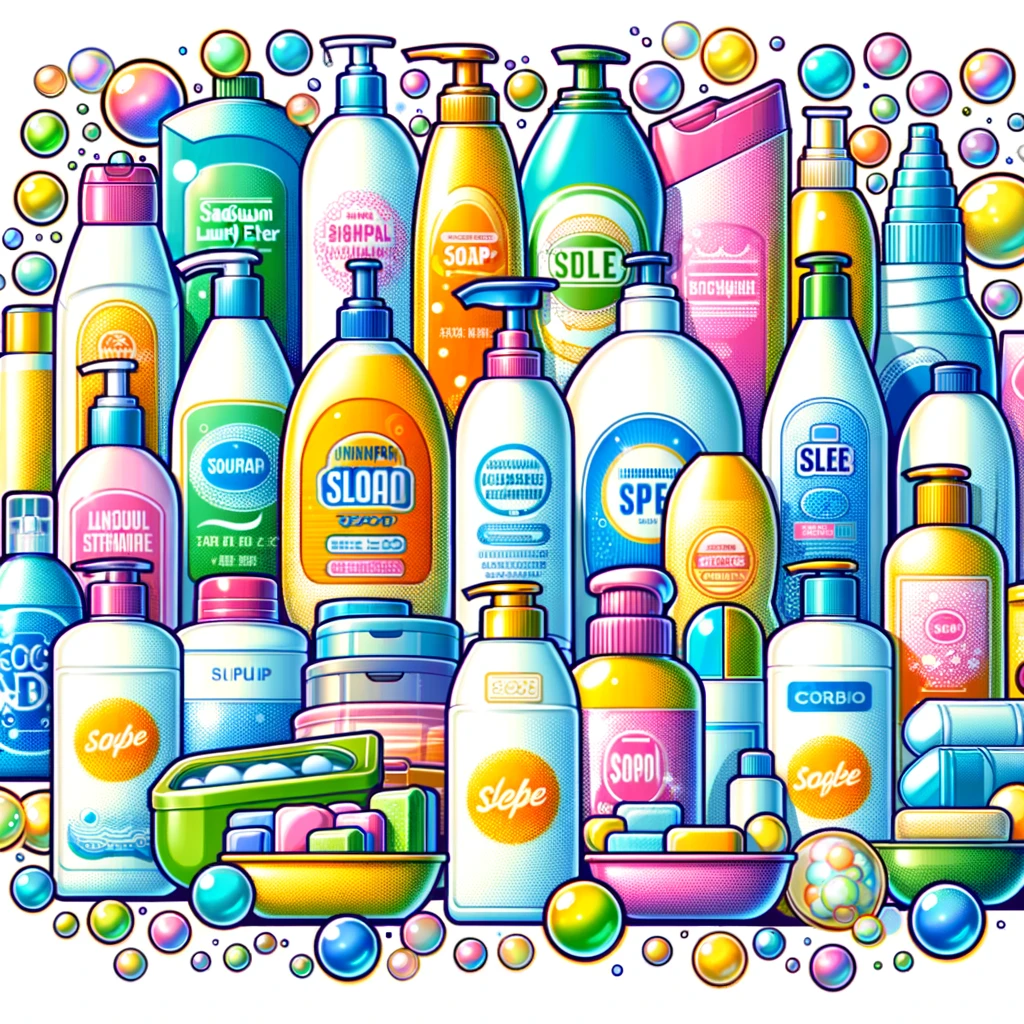Sodium lauryl Ether Sulphate (SLES)

Sodium Lauryl Ether Sulphate (SLES) is known by several synonyms, which are often used interchangeably in various industries, particularly in cosmetics and cleaning products. Here's a list of its common synonyms:
- 1-Sodium Laureth Sulfate (SLES): This is the most widely used synonym and is recognized globally in the personal care industry.
- 2-Sodium Polyoxyethylene Lauryl Sulfate: This term emphasizes the presence of polyoxyethylene in the compound, which is key to its surfactant properties.
- 3-Dodecyl Sodium Ether Sulfate: This name refers to the chemical structure of SLES, highlighting 'dodecyl' as the 12-carbon tail of the molecule.
- 4-Sodium Salt Ethoxylated Lauryl Sulfate: This synonym describes the ethoxylated sulfate salt form of lauryl alcohol.
- 5-Sodium Lauryl Diethylene Glycol Ether Sulfate: This term indicates the inclusion of diethylene glycol in the ethoxylation process of SLES.
- 6-Sodium 2-Dodecyl Ethoxylate Sulfate: Another structural descriptor, pointing out the specific ethoxylate positioning on the dodecyl group.
Exploring the Versatility of SLES
Its versatility extends beyond personal care. SLES is a key ingredient in household cleaners, demonstrating a broad range of applications. This adaptability underlines its importance in various industries.
Decoding the Benefits of SLES
SLES offers several benefits. Its ability to create dense foam improves product appeal. Moreover, it effectively removes oils and dirt, ensuring thorough cleaning. Its cost-effectiveness adds to its desirability in product formulations.
Addressing the Myths: Safety and Environmental Impact
Contrary to misconceptions, SLES is generally safe for consumer use. Rigorous testing ensures its safety in products. Additionally, its biodegradability minimizes environmental impact, aligning with eco-friendly practices.
Future Trends and Innovations in SLES Usage
Innovation in SLES usage is ongoing. Research focuses on enhancing its effectiveness while reducing potential environmental impact. Future developments are likely to increase its sustainability, making it an even more attractive ingredient.
Diverse Applications for Every Need
1. Personal Care Industry: The Beauty Enhancer
In the personal care realm, SLES N70 is a star. It's a primary ingredient in shampoos, shower gels, and facial cleansers. Its gentle cleansing action and luxurious foam generation make it ideal for skin and hair care products, offering a balance of efficiency and mildness.
2. Household Cleaners: The Ultimate Stain Fighter
SLES N70 shines in household cleaning products. From dishwashing liquids to laundry detergents, it boosts cleaning power. Its ability to break down grease and dirt makes it a go-to ingredient for tough household stains, leaving surfaces spotless and fresh.
3. Industrial Cleaning: The Powerhouse in Cleanliness
In industrial settings, SLES N70 is indispensable. Its application in heavy-duty cleaners, degreasers, and industrial hand washes ensures effective removal of industrial grime and oil, making it a key player in maintaining hygiene and cleanliness in challenging environments.
4. Cosmetics: The Secret for Soft and Silky Formulas
In cosmetics, SLES N70 is a hidden gem. It's used in cream-based products like shaving creams and foam baths, providing a soft, silky texture. Its ability to create a rich lather adds a luxurious feel to cosmetic products, enhancing the user experience.
5. Pharmaceutical Applications: The Gentle Cleanser
In the pharmaceutical industry, SLES N70’s role is growing. It's used in topical ointments and medicated shampoos, where its mild and effective cleansing properties are crucial. Its compatibility with a range of ingredients makes it a safe choice in sensitive formulations.
6. Textile and Leather Processing: The Enhancer of Quality
In textile and leather processing, SLES N70 assists in wetting and washing processes. It helps in the even application of dyes and treatments, ensuring high-quality finished products with enhanced appearance and longevity.
Understanding SLES N70 Pricing: Key Factors That Shape the Market Value"
- Raw Material Costs: The price of raw materials required to produce SLES N70, such as lauryl alcohol and ethylene oxide, significantly impacts its final cost. Fluctuations in these commodity prices can lead to variable pricing of SLES N70.
- Production Costs: Manufacturing processes, including ethoxylation and sulfation, contribute to production costs. Efficient production methods can reduce costs, whereas more complex processes can increase them.
- Supply and Demand Dynamics: The classic economic model of supply and demand plays a crucial role. High demand for SLES N70, especially in industries like personal care and household cleaning, can drive up prices. Conversely, oversupply can lead to price drops.
- Transportation and Logistics: The cost of shipping and handling, influenced by fuel prices, logistics infrastructure, and distance, also affects the price. International transportation can add significant costs due to customs and import tariffs.
- Quality and Purity Levels: Higher purity and quality standards often result in higher prices. Products that meet stringent regulatory requirements and quality benchmarks tend to be priced higher.
- Market Competition: The number of suppliers and the competitive landscape can influence pricing. In a market with numerous suppliers, prices may be more competitive, whereas limited suppliers can lead to higher costs.
- Global Economic Conditions: Exchange rates, global economic stability, and geopolitical events can impact the cost. Economic downturns, for example, might reduce demand and prices, whereas economic booms could have the opposite effect.
- Regulatory Changes:Changes in environmental and safety regulations can lead to increased production costs. Compliance with new regulations might require changes in manufacturing processes, impacting the final price.
- Innovation and Technological Advancements: Investment in research and development for more efficient production processes or eco-friendly alternatives can influence pricing, either reducing costs through efficiency gains or increasing them due to higher R&D expenses.
Conclusion: SLES - An Indispensable Ingredient
In summary, Sodium Lauryl Ether Sulphate is an indispensable ingredient in many products. Its cleaning efficiency, safety, and versatility make it a key player in the surfactant market. As innovations continue, its role is set to grow, solidifying its place in various industries




